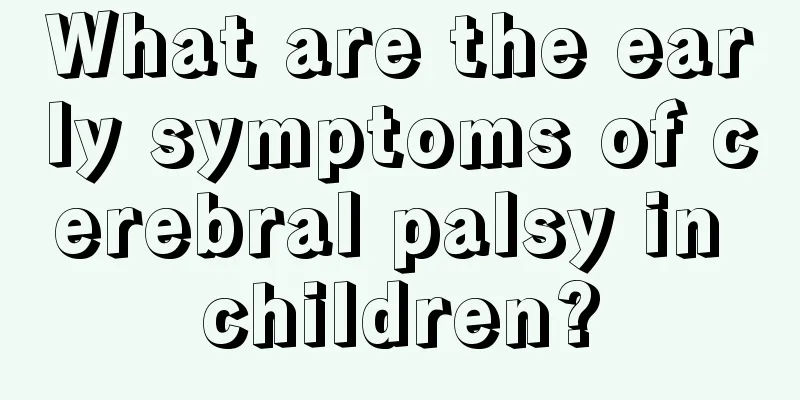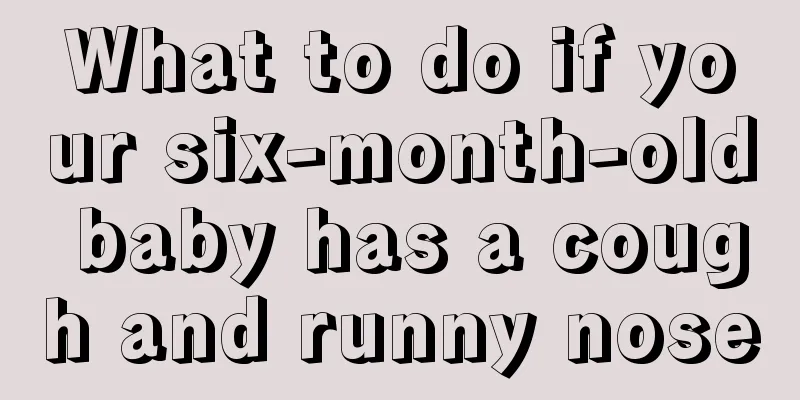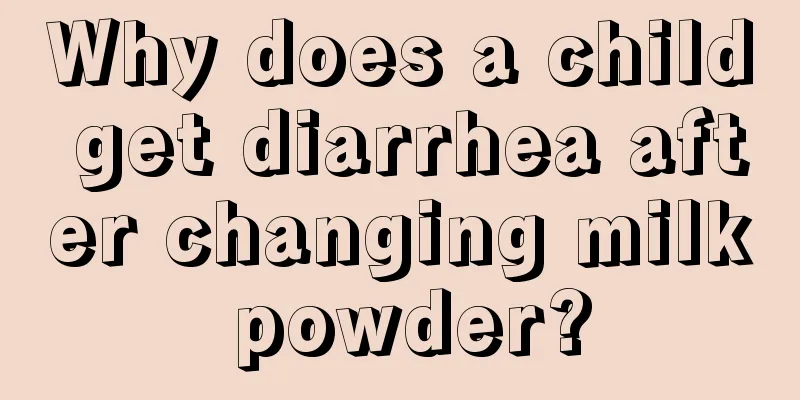What are the early symptoms of cerebral palsy in children?

|
Cerebral palsy is a movement disorder caused by various reasons in unborn babies. It is often accompanied by symptoms such as mental retardation and epilepsy. It is a very serious disease. However, since the baby is still very young, unable to speak or even express himself, we need to look at other symptoms to determine whether the baby has cerebral palsy. So, what are the early symptoms of cerebral palsy in children? 1. He can’t lift his head at three months, can’t roll over at six months, and can’t sit at eight months. 2. There is no sound when crying or the crying voice is weak, low and straight. 3. The hands and feet are not coordinated during exercise, and unilateral movements are more common. At 4 months old, he could not put his hands to his mouth, and when lying on his stomach at the head of the bed, his mouth and nose were completely pressed against the bed. 4. Weak sucking, difficulty swallowing, frequent choking, choking, and vomiting during feeding. 5. Inability to discern the direction of sound. You cannot move left and right to follow the sound, but turn your body to follow the sound. 6. Not very sensitive to color and light, and eyes are dull. 7. Unable to open legs when peeing. 8. No eye contact with parents and frequent convulsions. 9. Sleeping too long or not sleeping at all, not crying or laughing. Identify the severity and classification of cerebral palsy based on intelligence, motor skills, emotions, etc. The manifestations of cerebral palsy vary depending on the cause and type, but the most common symptoms in the early stage are: (Early symptoms in the first half of infants with cerebral palsy (within 6 months)) 1. Body weakness and decreased spontaneous movements are symptoms of hypotonia and can be seen as early as one month. If it persists for more than 4 months, it may be diagnosed as severe brain damage, mental retardation or muscle system disease. 2. The body becomes stiff. This is a symptom of hypertonia and can be seen in one month. If it persists for more than 4 months, it can be diagnosed as cerebral palsy. 3. Slow reaction and no response when the name is called are early manifestations of mental retardation. It is generally believed that slow reaction at 4 months and no response when the name is called at 6 months can be diagnosed as mental retardation. 4. Abnormal head circumference: Head circumference is an objective indicator of the morphological development of the brain. Children with brain damage often have abnormal head circumference. 5. Poor weight gain and inability to breastfeed. 6. Fixed posture is often caused by abnormal muscle tone due to brain damage, such as opisthotonos, frog position, inverted U-shaped posture, etc. It can be seen one month after birth. 7. Not smiling: If a child cannot smile at 2 months or laugh out loud at 4 months, he or she may be diagnosed with mental retardation. 8. Fist: If the baby cannot open his fist after 4 months, or the thumb is adducted, especially on one upper limb. Cerebral palsy is one of the more serious pediatric diseases because it is difficult to cure completely. However, the symptoms of cerebral palsy patients vary in severity, and some milder symptoms can be treated with medication. We all know that the development of the brain requires high protein, so we should supplement our babies with protein on a regular basis. |
<<: What is the reason for repeated coughing in children?
>>: Solution to a two-year-old child with a fever of 39.2
Recommend
Childhood obesity is harmful: Five strategies to prevent it
Due to lack of sufficient nutritional knowledge, ...
What are the causes of eczema on baby's head?
It is common for breastfeeding babies to develop ...
Rheumatic fever in children, early signs and symptoms
Rheumatic fever in children is prone to recurring...
What is the cause of a small amount of blood in the baby's stool?
We all know that the baby's stool can best re...
Treatment for not wanting to have sex after having a baby
Nowadays, many female friends who have given birt...
What is aspiration pneumonia in children
I believe everyone knows the importance of lungs ...
Why does the baby's brain space widen?
Widening of the intercerebral space is a common h...
Can newborns use prickly heat powder?
The temperature in summer is very high and the ba...
Introduction to children's health care knowledge in autumn
As autumn approaches, the temperature difference ...
What foods are good for children's eyes?
Some children have black eyes and a blink of an e...
Can newborns take calcium supplements?
Everyone knows that calcium is particularly impor...
Grainy pimples on baby's neck
Many young babies cannot speak yet, and can only ...
Can thrush grow on the tongue?
Children often get thrush because of their low re...
Is it normal for a two month old baby to have bent legs?
Many mothers do not bind the legs of babies when ...
What tests should be done for hernia in children?
Many parents with children will encounter pediatr...









